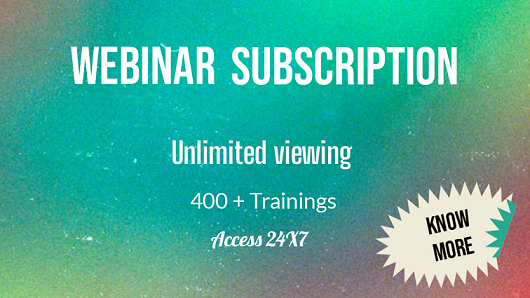Instrument Calibration for Chemical Forensic and Environmental Analysis

Instructor:
James Peterson
Product ID: 706289
Training Level: Intermediate
- Duration: 60 Min

Why Should You Attend:
Do you struggle with knowing what to do with calibration curves that are not linear? Do you have trouble with analyses that produce anomalous or negative results? Are you not sure what methods to correct for inaccuracies are proper and acceptable? Did you know that the use of internal standards does not always correct for inaccuracies in a method? Find out how to approach these questions, when to apply the methods and why some approaches don’t work in this webinar.
Not all calibration curves are linear, that’s why they are called curves. Some curves require more calibration standards to define the curve. This webinar will provide a survey of methods to assess calibration curve linearity, ways to mathematically fit curves to the calibration data to obtain accurate results and present examples of improper use of calibration data. In addition, the you will learn how to assess the accuracy of an analysis and how to use the assessment to improve the analytical method. Methods of calibration using eternal standards, internal standards, extracted standards and standard additions will also be covered.
Areas Covered in the Webinar:
- Types of calibration curves: Linear, exponential, quadratic, polynomial and weighted
- Methods of calibration: External standard, internal standard, extracted standards, and standard additions
- The number of standards required to define a calibration curve
- How to assess the linearity of a calibration curve
- How to apply mathematical curve fit routines to calibration curves and the routines that are not recommended in certain circumstances
- The proper use of internal standards in a method and the critical steps and considerations in their application
- How to assess accuracy of a method and how to use the assessment to improve the method
- How to write an SOP that will accommodate the calibration methods that may be applied to the data obtained during calibration
Who Will Benefit:
- Quality assurance manager
- Method development and validation chemist
- Forensic chemist
- Toxicological chemist
- Environmental chemist
- Food chemist
- Clinical chemist
- Chemistry laboratory manager
From
- Forensic laboratories
- Environmental and water testing laboratories
- Toxicological laboratories
- Sports doping laboratories
- Clinical laboratories
- Food testing laboratories
Free Materials:
- Reference documents
- Agency guidance
- SOP example
- Articles

James Peterson
Forensic Chemistry Consultant, James C Peterson LLC
Dr. James C. Peterson has a Ph.D. in analytical chemistry from the University of Maryland and has over 36 years of analytical chemistry laboratory experience in academic, private, state, and federal laboratories. As a qualified chemist forensic examiner for the FBI Laboratory, he managed and oversaw forensic chemical examinations of evidence for the presence of chemical weapons. He has served as an analytical chemistry expert witness in legal cases related to the human exposure to toxic chemicals.
Dr. Peterson directed the start-up of five analytical laboratories which included the preparation of quality assurance documentation, instrumentation qualification and method development and validation. He has developed numerous methodologies for the detection and identification of toxic chemicals and drugs in human blood and urine, trace evidence and environmental samples and has given scientific presentations and training seminars at local, national and international conferences.
Refund Policy
Our refund policy is governed by individual products and services refund policy mentioned against each of offerings. However in absence of specific refund policy of an offering below refund policy will be effective.
Registrants may cancel up to two working days prior to the course start date and will receive a letter of credit to be used towards a future course up to one year from date of issuance. ComplianceOnline would process/provide refund if the Live Webinar has been cancelled. The attendee could choose between the recorded version of the webinar or refund for any cancelled webinar. Refunds will not be given to participants who do not show up for the webinar. On-Demand Recordings can be requested in exchange. Webinar may be cancelled due to lack of enrolment or unavoidable factors. Registrants will be notified 24hours in advance if a cancellation occurs. Substitutions can happen any time. On-Demand Recording purchases will not be refunded as it is available for immediate streaming. However if you are not able to view the webinar or you have any concern about the content of the webinar please contact us at below email or by call mentioning your feedback for resolution of the matter. We respect feedback/opinions of our customers which enables us to improve our products and services. To contact us please email [email protected] call +1-888-717-2436 (Toll Free).










